Artificial Intelligence (AI) has been a buzzword in the business world, particularly in sales. However, the question remains : Will AI Replace Salespeople And can robots effectively understand human psychology and sell?
Some argue that the technology has not yet reached that level, while others believe it’s already happening. This debate has sparked intense discussions across online communities, leaving many wondering which side to believe.
In this post, we’ve compiled arguments from both the optimists and pessimists, providing you with a comprehensive view of the ongoing debate.
Let’s understand all about AI for sales so that you can make an informed decision.
What is AI in Sales?
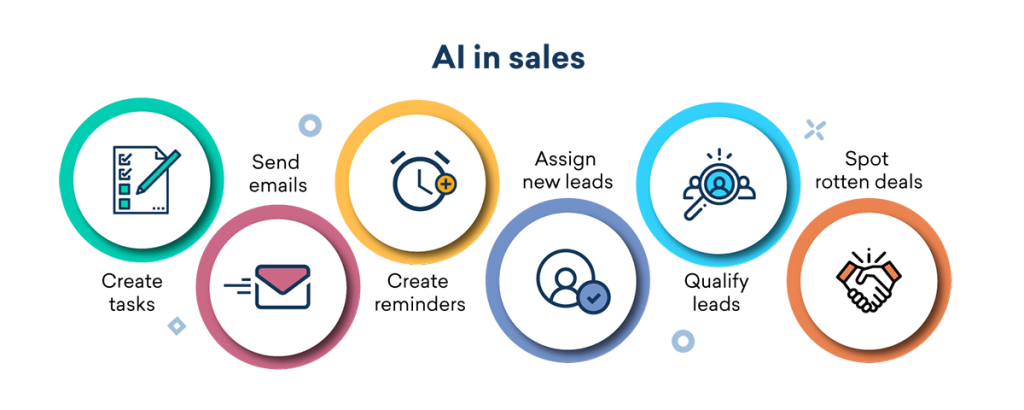
AI in sales means using computer programs to make selling things easier and better.
These programs can be taught to use big sets of information to help sales teams save time and sell more effectively.
AI tools can do things like:
- Doing specific tasks and making decisions
- Guessing what people might do based on what they’ve done before
- Talking to people like they’re smart
Why do we need AI in Sales?
AI can help sales teams work faster and better by doing some of the work for them. This lets the salespeople focus on the most important things and make more sales.
What is the Role of Artificial Intelligence in Sales?
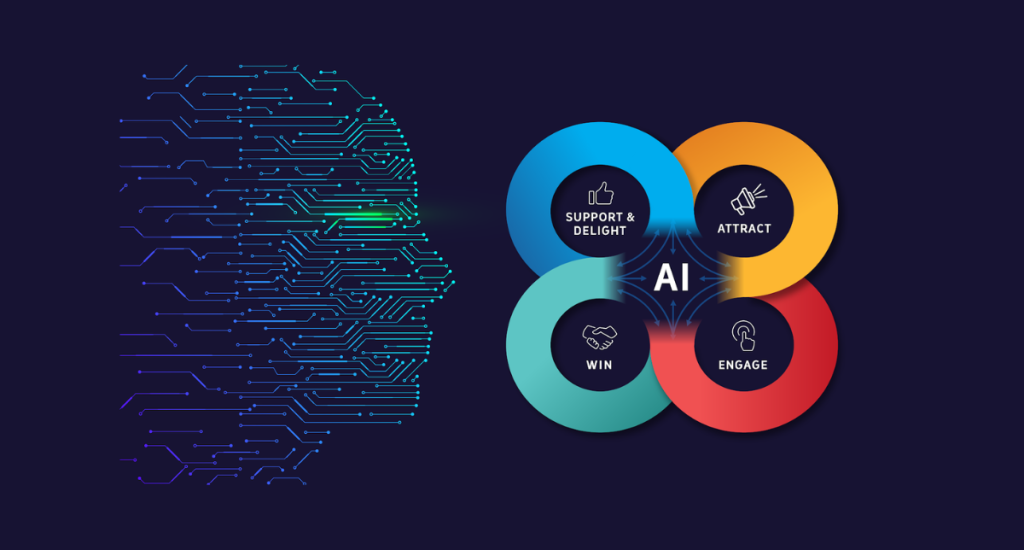
Salespeople often spend only one-third of their time actively selling, as they get bogged down with administrative tasks and meetings.
Artificial intelligence (AI) presents an opportunity to improve this by streamlining sales operations.
Business leaders have recognized this, with a Salesforce study showing that AI is now considered one of the most valuable sales tools.
Read interesting studies done by Salesforce at: Einstein AI
By 2025, the market for AI-powered platforms is expected to grow to $37 billion.
AI can help with various sales functions, such as quickly adapting to buyer needs, personalization, accessing real-time data, and gathering information from multiple platforms.
Most sales reps believe that digital transformation has accelerated in the last three years, changing sales technology needs significantly.
Therefore, AI is essential for adapting to the evolving sales landscape.
Now that’s what makes salespeople worry and make them question Will AI Replace Salespeople?
Before getting to the answer, let’s understand How AI is Changing Sales?.
How AI is Changing Sales?
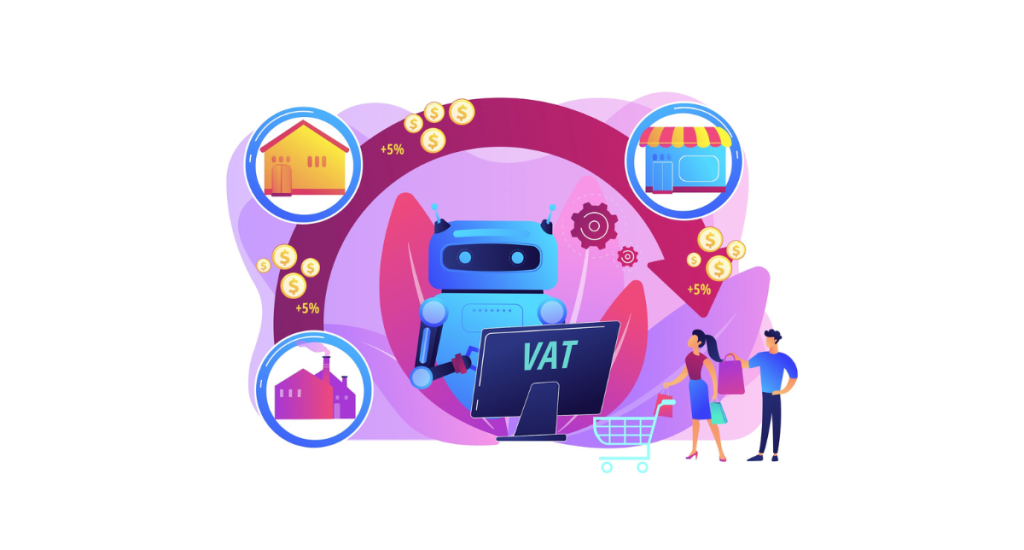
AI and automation tools are increasingly used to improve the sales process.
These tools can act as digital copilots for salespeople, helping them sell more effectively.
However, as AI becomes more advanced, some people are concerned that it could replace salespeople altogether.
According to Forbes, 34% of people expect their jobs to be automated, at least in part, by 2023.
Additionally, experts predict that AI has the potential to replace up to 85 million jobs by 2025.
However, they also predict that AI could create an additional 97 million jobs in the process.
What does this mean for the future of sales?
There will be a shift in the industry, and those who understand and use AI effectively will be more likely to succeed.
While AI tools may not replace salespeople entirely, it’s important to stay informed about how technology is changing the sales landscape.
What is the Future Role of Salespeople in the Age of Technology?
The sales industry has undergone significant changes in recent years, and salespeople have had to adapt to new ways of selling.
Over the past few years, virtual selling has become a necessity, and many salespeople had to learn how to sell virtually without being able to meet their clients face-to-face.
Those who embraced new technology and adapted to the changes succeeded despite the challenges.
Before that, social media exploded, and social selling became a new tool for businesses to attract audiences and find prospects.
LinkedIn, in particular, has become a valuable asset for salespeople to build their network and perform outbound prospecting activities.
Now, we are entering the age of AI selling, which might be confusing for some.
However, research shows that over 80% of people believe AI technology can increase their performance and job satisfaction.
This means that salespeople will need to understand and embrace AI technology to succeed in the future.
How AI Can Improve Sales Operations?
Assistance in Administrative Tasks:
Sales organizations face increasing administrative work over time due to selling complexity, documentation, approvals, and compliance reporting.
Generative AI can help salespeople with emails, proposal requests, note organization, and CRM data updates to reverse this trend.
Enhancing Customer Interactions:
AI-powered systems can recommend personalized content, product offers, and the best channel for salespeople to use.
Generative AI can produce better recommendations by considering customer sentiments gleaned from language nuances and subtle signals of customer interest or distrust.
Assisting Sales Managers:
Generative AI can make sales reporting systems more powerful and forward-looking, helping sales managers discover opportunities, formulate key account strategies, and determine how to allocate effort to geographies, customers, products, and activities.
Dealing with Inaccuracy and Inconsistency:
AI is not completely accurate as of now.
Chances are it may give you wrong information.
Users must learn how to use such technologies, starting with high but realistic expectations, training, and best-practice sharing.
Accuracy and consistency can improve with fine-tuning on knowledge from the company’s context and human review of AI-generated answers.
Realizing Value Quickly:
Integrating capabilities into existing sales systems and buying existing applications can help sales organizations realize value in weeks instead of months.
Building a custom AI-powered system is time-consuming and resource-intensive.
Delivering Results While Controlling Costs:
Companies can hire AI experts or outsource AI tools development that will help them in focusing on sales and get new ideas.
For instance, a boundary spanner can help tailor solutions for sales, implement them sustainably over time, and encourage continuous improvement through agile, iterative implementation.
With so many pros, you may wonder, will AI Replace Salespeople?
Let’s find out!
Will AI replace sales jobs or help salespeople be more productive?

Many companies are using AI-powered technology to make their sales team more productive.
AI can do things like help copywriters write better content and assist computer programmers with code, which has increased their productivity.
AI is also helping customers find products and services they want to buy online.
Although AI is taking over some tasks, such as lead generation, product information sharing, and order placement, salespeople are still needed for more complex sales.
Salespeople are still important for identifying customers’ needs, offering tailored solutions, and navigating complex buying organisations.
In the future, companies selling AI technology will need salespeople to capture new opportunities.
So, AI may change the role of salespeople, but it won’t replace them entirely.
While there’s no doubt that AI has the power to revolutionise the way we sell, it’s important to note that it’s not a replacement for human salespeople.
In fact, one of the most important factors in sales success is effective sales training. Learn about it at: Most Effective Sales Training
Advantages of using AI for Sales
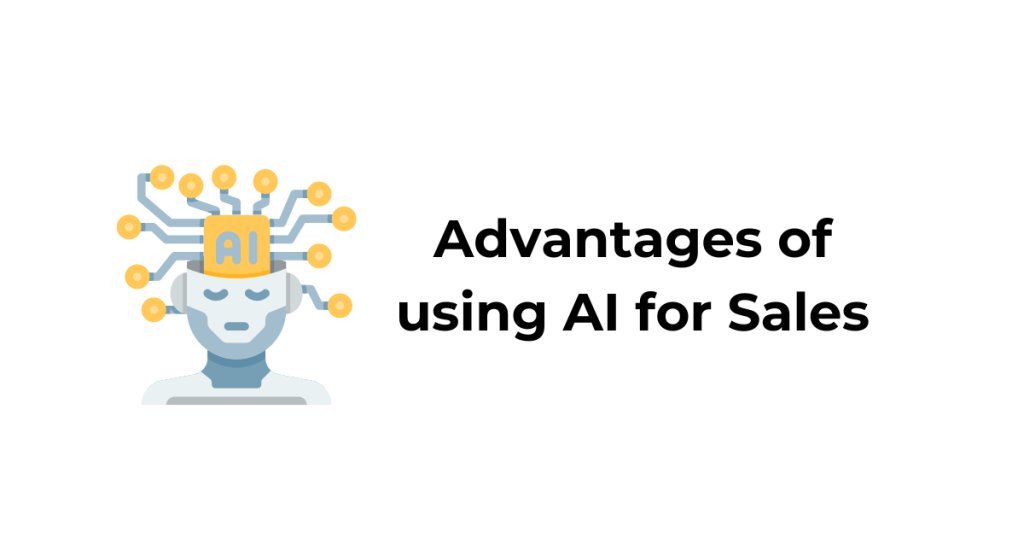
The advantages of utilising Artificial Intelligence and Automation in Sales are widely recognized.
According to a Hubspot study, 61% of sales teams that exceeded their revenue targets implemented automation in their sales procedures.
Successful teams don’t simply use AI as a one-time solution but integrate it into their strategies.
Besides generating revenue, the essential benefits of AI and automation include:
Enhancing efficiency: Deloitte’s research shows that most high-level users desire to improve efficiency through AI adoption.
33% of teams using AI reported that it significantly increased organisational efficiency.
Streamlining time-consuming administrative tasks: Existing sales technology, including AI, can easily automate about 30% of sales tasks, according to Mckinsey’s study.
Facilitating precise sales planning and forecasting: Forecasts are the most valuable data insights for over half of salespeople.
Using forecasts, AI and automation assist in improving and boosting the sales processes.
Increasing job satisfaction: AI can boost team morale. In a 2022 Deloitte survey, 82% of respondents strongly believed that AI would enhance their job performance and satisfaction.
Best ways through which your sales team can use AI
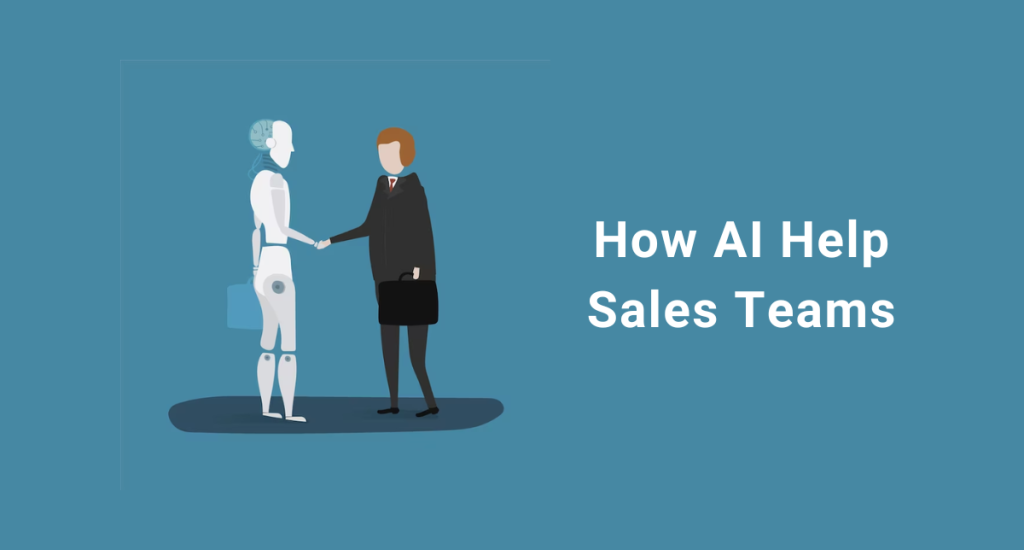
Artificial intelligence (AI) has revolutionised the sales industry by enabling sales teams to be more efficient, effective, and personalised in their approach.
AI can help businesses understand customer behaviour, predict buying patterns, and optimise sales strategies.
Lead Scoring and Prioritization
One of the most important tasks in sales is lead scoring and prioritisation. AI can help your team identify high-quality leads by analysing large amounts of customer data.
With machine learning algorithms, AI can predict which leads are more likely to convert based on past behaviour, demographics, and other factors.
This allows sales teams to prioritise their efforts on the most promising leads and increase their chances of closing deals.
Predictive Sales Forecasting
Sales forecasting is a critical process that helps businesses plan and prepare for the future.
AI-powered predictive analytics can help sales teams accurately forecast sales trends and revenue growth.
By analysing historical data, AI can identify patterns and trends in customer behaviour, allowing sales teams to make data-driven decisions about sales strategies, resource allocation, and marketing campaigns.
Sales Automation
Sales automation is another area where AI can be extremely useful.
AI-powered sales automation tools can automate time-consuming tasks such as lead generation, follow-up emails, and scheduling meetings.
This allows sales teams to focus on higher-level tasks such as building relationships with clients and closing deals.
Sales automation tools can also provide real-time insights into customer behaviour, allowing sales teams to personalise their approach and tailor their messages to individual customers.
Chatbots and Virtual Assistants
Chatbots and virtual assistants powered by AI can improve customer engagement and provide personalized experiences.
These tools can answer customer queries, provide product recommendations, and even facilitate transactions.
Chatbots can also analyze customer interactions and provide valuable insights into customer behavior, preferences, and pain points.
This can help sales teams identify opportunities for cross-selling, upselling, and personalized marketing.
Sales Performance Analysis
AI-powered analytics tools can provide valuable insights into sales performance.
By analyzing data such as sales cycles, win rates, and customer interactions, these tools can identify areas for improvement and help sales teams optimize their strategies.
AI can also help businesses track the effectiveness of marketing campaigns, measure ROI, and identify opportunities for growth.
Training Salespeople for an AI-Enabled Future
As artificial intelligence (AI) continues to transform the sales industry, it’s essential for businesses to equip their sales teams with the skills and knowledge they need to succeed in an AI-enabled future.
This means providing training that helps salespeople understand how to leverage AI tools and technologies to enhance their performance, rather than replace them.
Here are some key considerations for training salespeople for an AI-enabled future:
Understanding AI and Its Capabilities
The first step in training salespeople for an AI-enabled future is to ensure they understand what AI is and what it can do.
This includes an overview of the different types of AI, such as machine learning, natural language processing, and computer vision, and how they can be applied in sales.
Salespeople should also be familiar with the various AI-powered tools and technologies available, such as predictive analytics, chatbots, and virtual assistants.
By understanding the capabilities of AI, salespeople can identify opportunities to incorporate these tools into their sales strategies and workflows.
Developing Data Literacy Skills
AI relies heavily on data, so it’s essential for salespeople to be proficient in data literacy.
This includes the ability to collect, analyze, and interpret data to inform sales strategies and decision-making.
Furthermore, effective sales techniques also involve various techniques. One such technique is Spin Sales Technique. Learn about it at: SPIN Sales Training: Techniques and Benefits
Salespeople should be familiar with data visualization tools, such as dashboards and charts, and understand how to use data to identify patterns, trends, and opportunities.
They should also be comfortable working with customer data, including demographics, purchase history, and behavioral data, to personalize their approach and provide tailored solutions to customers.
Emphasizing the Importance of Emotional Intelligence
While AI can provide valuable insights into customer behavior, it can’t replace the human touch when it comes to building relationships and providing personalized service.
Therefore, it’s crucial to emphasize the importance of emotional intelligence in sales training.
Salespeople should be trained to recognize and respond to customer emotions, such as frustration, excitement, or confusion.
They should also be able to adapt their communication style and approach to meet the needs of individual customers, rather than relying on a one-size-fits-all approach.
Incorporating AI into Sales Processes
To effectively train salespeople for an AI-enabled future, it’s essential to incorporate AI tools and technologies into sales processes.
This includes providing hands-on training on how to use AI-powered tools such as chatbots, virtual assistants, and predictive analytics.
Sales teams should also be trained on how to integrate AI into their existing workflows, such as lead generation, qualification, and nurturing.
This includes identifying opportunities to use AI to automate repetitive tasks and provide real-time insights into customer behavior and preferences.
Fostering a Culture of Continuous Learning
Finally, to stay ahead of the curve in an AI-enabled future, sales teams must be committed to continuous learning and development.
This means providing ongoing training and support to ensure salespeople are up-to-date with the latest AI tools and technologies.
Sales teams should also encourage collaboration and knowledge-sharing between team members, as well as with other departments, such as marketing and customer service.
This is easily possible through The Best Sales Training Programs.
By fostering a culture of continuous learning, sales teams can stay agile and adaptable in an ever-evolving sales landscape.
The Role of Emotional Intelligence in Sales: Can AI Replicate It
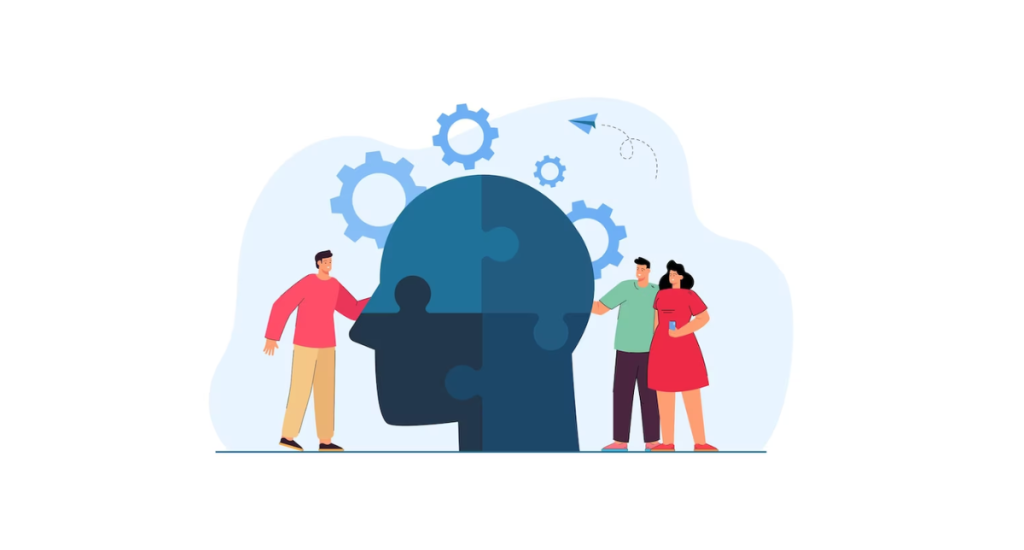
Emotional intelligence helps salespeople connect with customers on a deeper level, build trust, and provide personalized service.
It allows salespeople to recognize and respond to customer emotions, adapting their communication style to meet individual needs.
Furthermore, Personalized approaches can help build long-term relationships with customers and drive sales over time.
AI and Emotional Intelligence in Sales
- AI can provide valuable insights into customer behavior and preferences, but it currently lacks the ability to fully replicate emotional intelligence.
- AI-powered chatbots and virtual assistants can provide quick and efficient responses to customer inquiries, but they can’t fully replace the human touch when it comes to emotional intelligence.
- Emotional intelligence requires a deeper level of understanding and empathy than what AI is currently capable of.
Limitations of AI in Replicating Emotional Intelligence
- AI may be able to recognize certain emotions based on customer language and tone, but it can’t fully understand the underlying reasons for those emotions.
- Emotional intelligence requires a certain level of creativity and adaptability that is difficult for AI to replicate.
- Salespeople must be able to think on their feet, adapt their communication style to different customers, and respond to unexpected situations, which are skills difficult for AI to replicate.
Complementing Emotional Intelligence with AI
- AI-powered tools such as predictive analytics and customer data platforms can provide valuable insights into customer behavior and preferences, which can help salespeople personalize their approach and communication style.
- AI-powered chatbots and virtual assistants can provide quick and efficient responses to customer inquiries, freeing up salespeople to focus on more complex and high-value tasks.
- By leveraging the strengths of both AI and emotional intelligence, sales teams can provide the personalized service and human touch that customers expect, while still leveraging the latest AI-powered tools and technologies.
Striking the Right Balance Between AI and Emotional Intelligence
- The key to success in sales is striking the right balance between AI and emotional intelligence.
- Emotional intelligence remains a critical skill for building relationships and driving sales over time.
- By leveraging the strengths of both AI and emotional intelligence, sales teams can provide the personalized service and human touch that customers expect, while still leveraging the latest AI-powered tools and technologies to stay competitive in the ever-evolving sales landscape.
Conclusion
In conclusion, while AI technology continues to advance and offer new possibilities in the world of sales, it is unlikely to fully replace salespeople in the foreseeable future. While AI can automate certain tasks and provide valuable insights, the human touch and emotional intelligence that salespeople bring to the table cannot be replicated by AI alone. Instead, a combination of AI technology and human skills can lead to more successful sales strategies and long-term customer relationships. It’s important for sales teams to stay up-to-date on the latest AI-powered tools and technologies while still prioritizing the human touch in their sales approach.



